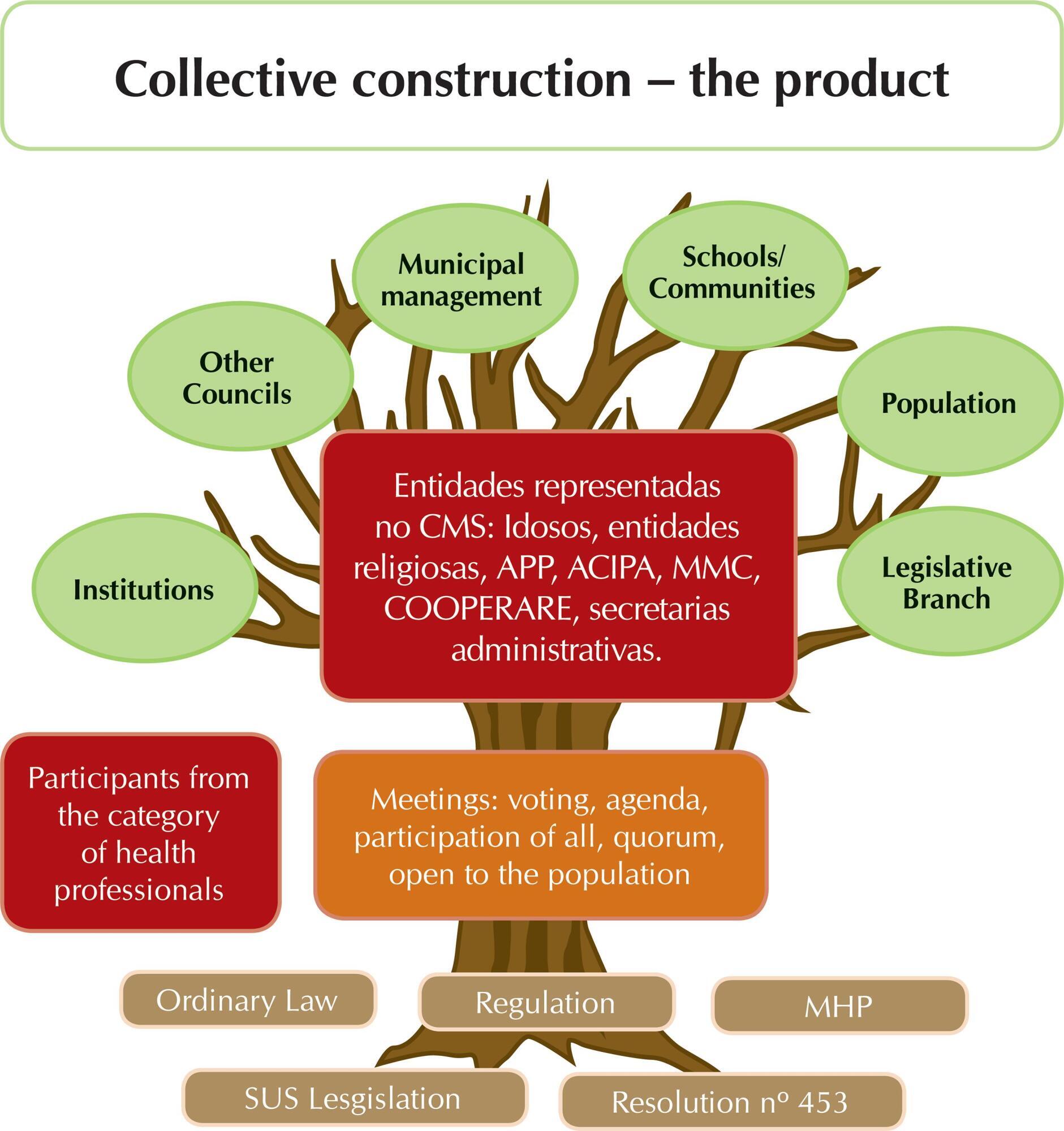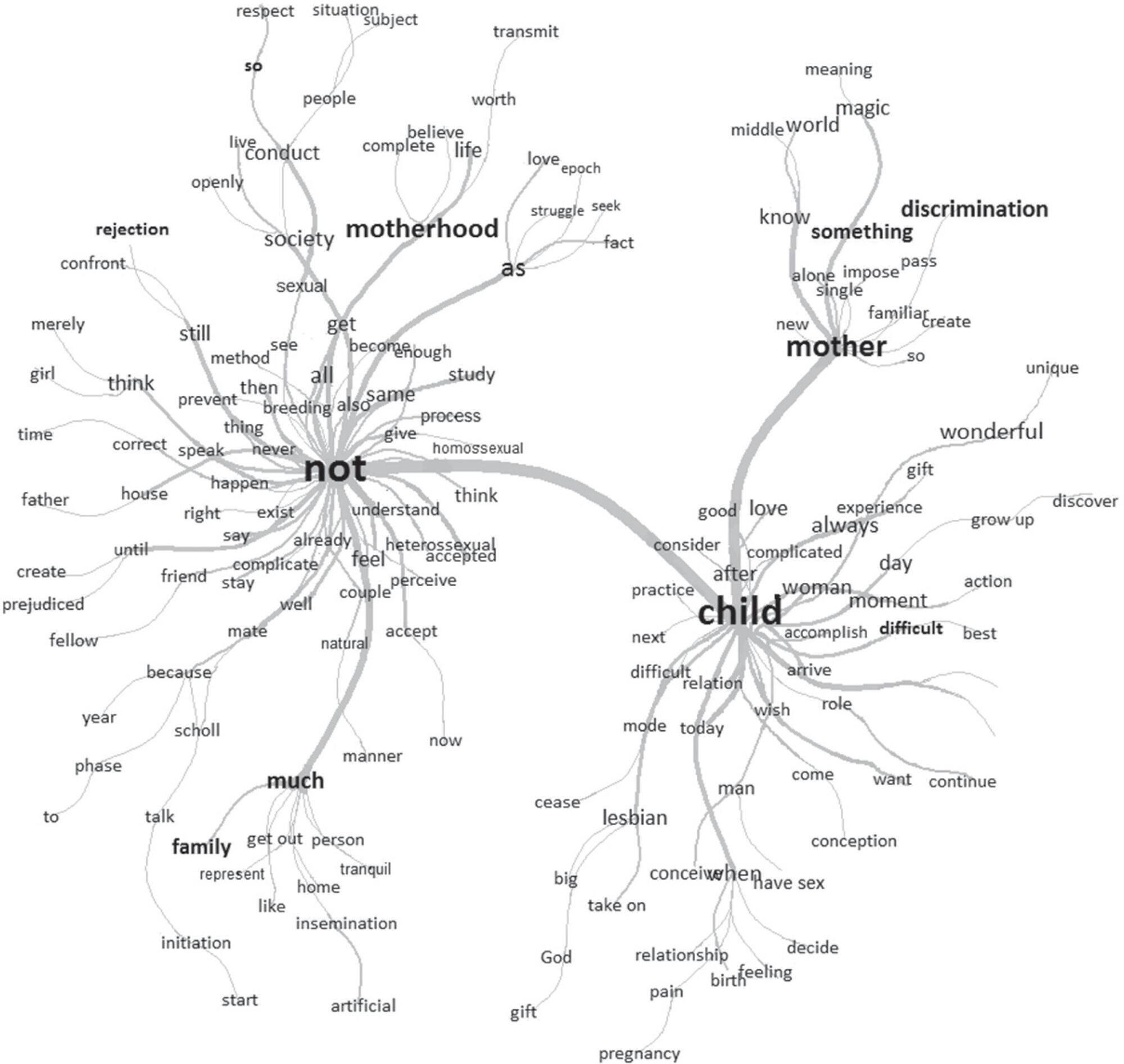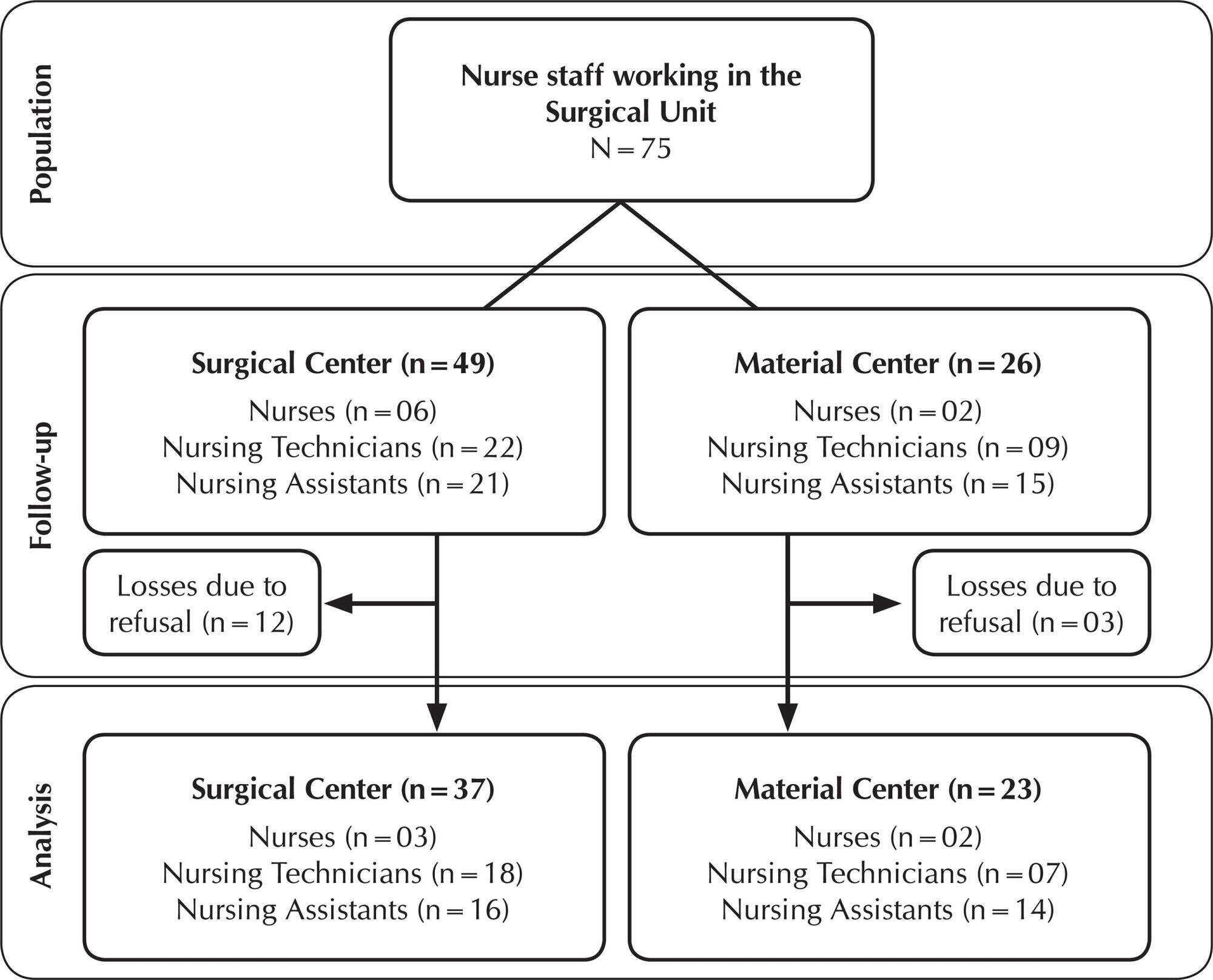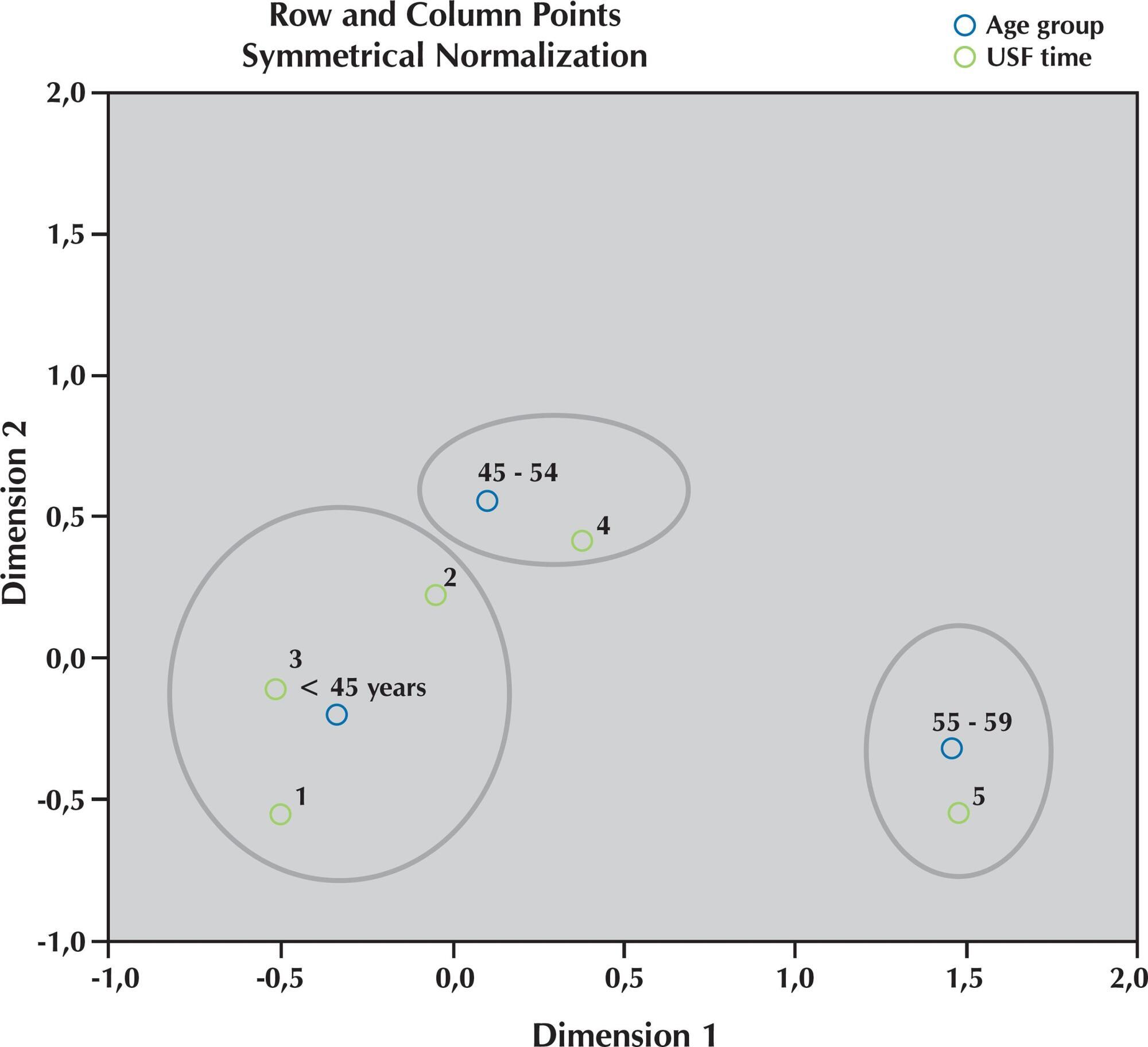-
01-01-2018
El cuidado en la Atención Primaria de Salud: vivencia de las enfermeras
Revista Brasileira de Enfermagem. 2018;71:531-537
Abstract
El cuidado en la Atención Primaria de Salud: vivencia de las enfermeras
Revista Brasileira de Enfermagem. 2018;71:531-537
DOI 10.1590/0034-7167-2016-0244
Views0See moreRESUMEN
Objetivo:
comprender el significado de realizar cuidados de enfermería en la Atención Primaria de Salud desde la perspectiva de las enfermeras chilenas.
Método:
investigación cualitativa con enfoque desde la fenomenología social de Alfred Schütz. La recolección de datos fue realizada entre enero y abril del 2013, a través de entrevista con 13 enfermeras de Atención Primaria en Chile.
Resultados:
las enfermeras perciben el cuidado como una experiencia gratificante considerando un encuentro de subjetividades. Sin embargo, se sienten sobrecargadas por múltiples funciones a realizar y por presiones jerárquicas en el logro de las metas. Aspiran implementar cuidados innovadores manifiestados por el deseo de superar el cuidado tradicional y la eficiencia de la gestión de los diversos niveles de atención de la salud.
Conclusión:
es importante discutir estos resultados en el contexto de la asistencia y especialmente en la formación, con el fin de preparar mejor a las enfermeras que brindarán cuidados en este nivel de atención.
-
RESEARCH01-01-2018
Obstacles in the detection and reporting of tuberculosis cases: a discursive analysis
Revista Brasileira de Enfermagem. 2018;71:523-530
Abstract
RESEARCHObstacles in the detection and reporting of tuberculosis cases: a discursive analysis
Revista Brasileira de Enfermagem. 2018;71:523-530
DOI 10.1590/0034-7167-2016-0673
Views0See moreABSTRACT
Objective:
To analyze the discourses of health professionals about the obstacles in the process of detection and reporting of tuberculosis cases in Mozambique.
Method:
Qualitative exploratory study with a theoretical-methodological approach of Discourse Analysis of French matrix. The study was conducted in Mozambique in 2014 at three levels: central, provincial and district. The study included 15 health professionals, 4 physicians, 6 technicians and 5 nursing professionals, who worked in the National Tuberculosis Control Program, with more than 1 year of experience.
Result:
The following discursive blocks emerged: Detection of tuberculosis cases in laboratories; Underreporting of tuberculosis cases; Obstacles to detect cases of tuberculosis: long distances and lack of transport; and Reporting of cases for decision making.
Final considerations:
The discourses analyzed point to the ideological affiliation that includes the lack of investment policies in the health sector and the political commitment as basic obstacles in the detection and reporting of tuberculosis cases.
-
RESEARCH01-01-2018
Quality of life of elderly people living with HIV/AIDS in outpatient follow-up
Revista Brasileira de Enfermagem. 2018;71:513-522
Abstract
RESEARCHQuality of life of elderly people living with HIV/AIDS in outpatient follow-up
Revista Brasileira de Enfermagem. 2018;71:513-522
DOI 10.1590/0034-7167-2017-0127
Views0See moreABSTRACT
Objective:
To analyze factors related to the quality of life of elderly people living with HIV/AIDS.
Method:
A cross-sectional study was carried out with people aged 50 years or more in a specialized outpatient clinic. The data collection was by means of an interview. For the analysis of data and characterization of the sample, descriptive statistics and comparison tests were used. The project met the ethical requirements.
Results:
Participants were 81 users aged 50 to 75 years, mean age was 57.8 (± 6.1) years, 71.6% of whom were men. There was a statistically significant relationship with the quality of life, the following variables: gender, children, occupation, religion, diagnosis time, HIV exposure, adverse effects, treatment interruption, viral load counts, hospitalization, dependence for daily activities and use of drugs.
Conclusion:
The results suggest that the quality of life deficit is related not only to physical changes, but to the anguish and stigma related to HIV/AIDS.
-
RESEARCH01-01-2018
Alcohol consumption, Quality of Life and Brief Intervention among Nursing university students
Revista Brasileira de Enfermagem. 2018;71:505-512
Abstract
RESEARCHAlcohol consumption, Quality of Life and Brief Intervention among Nursing university students
Revista Brasileira de Enfermagem. 2018;71:505-512
DOI 10.1590/0034-7167-2017-0692
Views0See moreABSTRACT
Objective:
To evaluate nursing university students’ alcohol consumption patterns, Brief Intervention and Quality of Life (QoL).
Method:
This is a prospective and longitudinal study containing sociodemographic, economic information concerning alcoholic beverages, BI and QoL evaluation among 281 nursing university students. Since surveys have been applied, seminars have been given and consumption patterns have been discussed, an educational material was delivered after university students’ revaluation and BI reinforcement. Descriptive and analytical statistics have been conducted.
Results:
90% of the students have already consumed alcohol and 20.6% that consumed for the first time and abused alcohol were minors. After the implementation of BI, the alcohol consumption has decreased among university students. Besides the vitality, generate state of health, and emotional aspects have decreased, mental health was substantially low among the students that used to drink.
Conclusion:
BI contributes to decrease alcoholic beverages consumption and promotes health.
-
RESEARCH01-01-2018
Reflections and collective production about being a municipal health counselor
Revista Brasileira de Enfermagem. 2018;71:496-504
Abstract
RESEARCHReflections and collective production about being a municipal health counselor
Revista Brasileira de Enfermagem. 2018;71:496-504
DOI 10.1590/0034-7167-2017-0369
Views0See moreABSTRACT
Objective:
to identify the participation dynamics of a municipal council and to develop a critical-reflexive process on “being a counselor”, identifying weaknesses and possibilities of this council, in addition to collectively generating new knowledge and (re)elaborating the MHC Ordinary Law.
Method:
Convergent care research, including documentary analysis, non-participant observation and thematic workshops. The research was carried out in 2016, with municipal health counselors from a city in the Western Region of Santa Catarina.
Results:
this study made it possible to identify forms of social participation that should be strengthened in the performance of social power, to reflect and share individual experiences, to anchor them in the current legislation, and to build knowledge that enabled the elaboration/organization of a product – a new text for the Ordinary Law of the Council, adjusted to current legislation.
Final considerations:
There is a need to increase participation, considering the presence of the counselors in the meetings, the effective representation and a greater interaction in the discussions and deliberations of the council.

-
RESEARCH01-01-2018
Social network: evaluation of the support or containment contexts of lesbian mothers
Revista Brasileira de Enfermagem. 2018;71:490-495
Abstract
RESEARCHSocial network: evaluation of the support or containment contexts of lesbian mothers
Revista Brasileira de Enfermagem. 2018;71:490-495
DOI 10.1590/0034-7167-2017-0419
Views0See moreABSTRACT
Objective:
To evaluate the social network of lesbian mothers, from the social contexts of support or restraint.
Method:
Descriptive, exploratory study, of qualitative approach, based on the theoretical reference of Social Network, with eight lesbian mothers selected through Snowball technique, using semi-structured interview. Data analysis was performed with IRAMUTEQ software, through Similarity Analysis.
Results:
The social network is configured as: 1) Emotional distance and non-acceptance of motherhood by the family members – primary network elements; 2) Interference in the socio-cultural medium for the effectiveness of the mother-child bond – secondary network elements.
Final considerations:
Social network is grounded on trivialized and negative conceptions that highlight prejudice and disrespect. The discussion of this theme contributes to a greater visibility of those new family arrangements as well as to reduce stigmas e prejudices that pervade the social network components of these women.

-
RESEARCH01-01-2018
Wellness room as a strategy to reduce occupational stress: quasi-experimental study
Revista Brasileira de Enfermagem. 2018;71:483-489
Abstract
RESEARCHWellness room as a strategy to reduce occupational stress: quasi-experimental study
Revista Brasileira de Enfermagem. 2018;71:483-489
DOI 10.1590/0034-7167-2017-0572
Views0See moreABSTRACT
Objective:
To compare occupational stress levels of nurse staff working in the surgical unit before and after the intervention “wellness room”.
Method:
Quasi-experimental study with a sample of 60 nurse staff working in a surgical unit of a teaching hospital in the Southern Region of Brazil. The intervention was conducted in a room in the workplace for six months and consisted of sections of aesthetic care, relaxation, lectures and workshops to reduce occupational stress. Data were collected through the Demand-Control-Support Questionnaire before and after the intervention, and the comparative analysis was performed by the Wilcoxon test.
Results:
After the intervention, there was a decrease in demand and an increase in control and in the social support received at work in all professional categories, but the differences were not statistically significant.
Conclusion:
The intervention “wellness room” reduced occupational stress levels in the sample studied; however, it was not a significant decrease.

-
RESEARCH01-01-2018
Characterization of users at risk of developing diabetes: a cross-sectional study
Revista Brasileira de Enfermagem. 2018;71:475-482
Abstract
RESEARCHCharacterization of users at risk of developing diabetes: a cross-sectional study
Revista Brasileira de Enfermagem. 2018;71:475-482
DOI 10.1590/0034-7167-2017-0776
Views0See moreABSTRACT
Objective:
To characterize the profile of users at risk of developing diabetes mellitus type 2 according to sociodemographic and clinical variables.
Method:
Cross-sectional study, descriptive, quantitative approach conducted with 266 users of Basic Care. Inferential statistics analysis, calculating the crude prevalence ratio with confidence interval of 95% and Kruskal-Wallis test, and application of the multivariate technique simple Correspondence Analysis.
Results:
It was noted that 83.1% were women and 36.4% frequented the Family Health Unit from 1 to 5 years. Regarding the factors associated with diabetes mellitus type 2, 66.5% of the users were overweight and 77.9% were rated with central obesity. The great majority, 77.4%, did not practice physical activities and 21.1% had altered glycemia.
Conclusion:
The results showed that many risk factors for developing diabetes mellitus type 2 were among the population of the study.

-
REVIEW12-21-2020
Strategies and competences of nurses in men’s health care: an integrative review
Revista Brasileira de Enfermagem. 2020;73:e20190546
Abstract
REVIEWStrategies and competences of nurses in men’s health care: an integrative review
Revista Brasileira de Enfermagem. 2020;73:e20190546
DOI 10.1590/0034-7167-2019-0546
Views0See moreABSTRACT
Objectives:
to synthesize scientific evidence on nurses’ strategies and competencies in men’s health care.
Methods:
an integrative review carried out in seven databases, with a time frame from 2009 to 2019, using the descriptors “men’s health”, “professional competence”, “nursing”, “nursing care” and “male” in Portuguese and in English.
Results:
ten articles were selected, in which it was demonstrated that nursing professionals develop their professional practices with regard to men’s health care, in convergence with the general skills of the profession. The most used are health care; decision-making; Communication; administration; management; continuing education and leadership, consecutively.
Final Considerations:
professionals’ efforts to strengthen health actions, aimed at male needs, in accordance with the general skills of the profession and the principles and guidelines of the Brazilian National Policy for Comprehensive Care to Men’s Health.

-
ORIGINAL ARTICLE09-16-2019
Social representations of HIV/AIDS by older people and the interface with prevention
Revista Brasileira de Enfermagem. 2019;72(5):1129-1136
Abstract
ORIGINAL ARTICLESocial representations of HIV/AIDS by older people and the interface with prevention
Revista Brasileira de Enfermagem. 2019;72(5):1129-1136
DOI 10.1590/0034-7167-2017-0748
Views0See moreABSTRACT
Objective:
To apprehend the social representations elaborated by older people about HIV/AIDS and to understand how they relate to the prevention of HIV infection.
Method:
Descriptive and qualitative research based on the Theory of Social Representations with 42 older people assisted at primary care. Data were produced through in-depth interviews with a semi-structured instrument, processed in the IRaMuTeQ software, and analyzed by means of the descending hierarchical classification.
Results:
Five classes emerged: “HIV/AIDS: a problem of young people”; “Quality of life improvement for people living with HIV/AIDS”; “Vulnerability to HIV/AIDS among heterosexual women in a stable union”; “HIV/AIDS Information Network: process of creation and transformation of social representations” and “Prevention versus stigma”.
Final considerations:
The social representations that older people have about HIV/AIDS influence the adoption of preventive measures negatively because stigma is present and HIV/AIDS is attributed to young men, and to men who have sex with other men.

-
ORIGINAL ARTICLE09-21-2020
Autonomy in the reproductive health of quilombolas women and associated factors
Revista Brasileira de Enfermagem. 2020;73:e20190786
Abstract
ORIGINAL ARTICLEAutonomy in the reproductive health of quilombolas women and associated factors
Revista Brasileira de Enfermagem. 2020;73:e20190786
DOI 10.1590/0034-7167-2019-0786
Views0See moreABSTRACT
Objective:
Identify the level of reproductive autonomy of quilombola women and associate it with sociodemographic characteristics and aspects of sexual and reproductive health.
Methods:
Cross-sectional census study carried out in quilombola communities in a municipality in Bahia. Data was collected through questionnaires from the National Health Survey and the Reproductive Autonomy Scale, applied to quilombola women who agreed to participate. Descriptive statistics procedures were used and associations were made between reproductive autonomy scores and sociodemographic and reproductive characteristics.
Results:
The average total score for reproductive autonomy was 2.06. An association was found between the “decision-making” score and marital status. The score for “total reproductive autonomy” was associated with the use of contraceptive method.
Conclusion:
The reality of the study participants converges with the literature regarding the interference of sociodemographic and reproductive factors in the reproductive autonomy of black women.
-
ORIGINAL ARTICLE08-19-2019
Psychosocial risks related to the nurse in the psychiatric hospital and management strategies
Revista Brasileira de Enfermagem. 2019;72(4):834-840
Abstract
ORIGINAL ARTICLEPsychosocial risks related to the nurse in the psychiatric hospital and management strategies
Revista Brasileira de Enfermagem. 2019;72(4):834-840
DOI 10.1590/0034-7167-2017-0311
Views0See moreABSTRACT
Objective:
To characterize the presence of psychosocial risks related to the work of the nurse in a psychiatric hospital and the strategies for managing these risks.
Methods:
Qualitative, in which 25 nurses from a psychiatric hospital participated using semi-structured interviews from November 2014 to January 2015. Data analysis was performed using the thematic method.
Results:
The results showed psychosocial risks related to the work of psychiatric nurses, such as: insufficient academic training; lack of preparation and maintenance of equipment; poor relationship with colleagues; shortage of human resources and lack of capacity building; conflict between the demands of the home and work, as well as strategies for managing psychosocial risks such as family, cinema, music, reading, among others.
Final considerations:
This study should provoke the reflection of managers and future nurses regarding the working conditions in a psychiatric hospital and possible psychosocial risks to which they are exposed.
-
EXPERIENCE REPORT07-01-2020
Generating meaningful conversation: World Café in strategic interprofessional planning in Continuing Education
Revista Brasileira de Enfermagem. 2020;73(5):e20190279
Abstract
EXPERIENCE REPORTGenerating meaningful conversation: World Café in strategic interprofessional planning in Continuing Education
Revista Brasileira de Enfermagem. 2020;73(5):e20190279
DOI 10.1590/0034-7167-2019-0279
Views0See moreABSTRACT
Objectives:
to present the particularities of the World Café, identifying the main aspects that characterize a planning strategy for a constructive, interactive, and participative dialogue of the individuals, aiming at collaborative and innovative learning.
Methods:
a World Café method workshop with 24 professionals from the teams that work in basic health units.
Results:
we obtained three analysis categories: Individual Needs, Group Needs, and Institutional Needs, which resulted in the Municipal Plan of Actions on Continuing Health Education.
Conclusions:
we found that the World Café was adequate and relevant for the discussion of key themes, for the practices of teams in Primary Care and the production and organization of data in a collective space.
Final Considerations:
the method can contribute to the construction of knowledge and proximity to the daily reality of interdisciplinary teams, as well as serving as a tool in the preparation of planning in Permanent Education.
-
06-28-2021
Trends in fertility rates, proportion of antenatal consultations and caesarean sections among Brazilian adolescents
Revista Brasileira de Enfermagem. 2021;74:e20200884
Abstract
Trends in fertility rates, proportion of antenatal consultations and caesarean sections among Brazilian adolescents
Revista Brasileira de Enfermagem. 2021;74:e20200884
DOI 10.1590/0034-7167-2020-0884
Views1See moreABSTRACT
Objective:
To analyze the temporal trends in the fertility rate, proportion of antenatal consultations and caesarean sections in Brazilian adolescents aged 15 to 19, between 2000 and 2015. Methods: The fertility rate, proportion of prenatal consultations and proportion of routes of birth were calculated using data from DATASUS. The trend analysis was performed using the Prais-Winsten regression model and the annual percentage change.
Results:
There was a trend of reduction of 3.5% per year in the fertility rate among adolescents (p<0.05), in addition to an increasing trend of 6% per year in the proportion of more than six antenatal consultations (p <0.0001) and an increasing trend of 6.8% per year in the proportion of caesarean sections (p<0.0001).
Conclusion:
Despite the decreasing trend in fertility rates among Brazilian adolescents, they remain high. Also noteworthy is the growing trend for caesarean sections, even with improved access to antenatal care.

-
ORIGINAL ARTICLE03-30-2020
Implication of the training ad continuing education process for the interprofessional performance
Revista Brasileira de Enfermagem. 2020;73(2):e20180359
Abstract
ORIGINAL ARTICLEImplication of the training ad continuing education process for the interprofessional performance
Revista Brasileira de Enfermagem. 2020;73(2):e20180359
DOI 10.1590/0034-7167-2018-0359
Views0See moreABSTRACT
Objetives:
to analyze the implication of the training/continuing education process of professionals of the Expanded Nucleus of Family Health and Basic Care (Portuguese acronym: Nasf-AB) for their interprofessional performance.
Methods:
a qualitative case study performed with Nasf-AB teams representative of four macro-regions of health of the state of Santa Catarina. Participation of 43 professionals, who answered collective interviews. The results were later submitted to thematic analysis.
Results:
the training is strongly influenced by the Biomedical Model, which acts as an obstacle to interprofessional performance, given the challenges in the daily routine of Nasf-AB professionals. Continuing education emerges as a potential for the successful collaborative work among teams, and between the teams and Family Health professionals.
Final considerations:
there are important limits in the training of professionals. However, the constant interprofessional development promoted by strategies of continuing education contributes to broaden the support and collaborative practices that qualify services and strengthen Basic Care.
-
ORIGINAL ARTICLE05-28-2021
Authentic leadership, nurse satisfaction at work and hospital accreditation: study in a private hospital network
Revista Brasileira de Enfermagem. 2021;74(2):e20200227
Abstract
ORIGINAL ARTICLEAuthentic leadership, nurse satisfaction at work and hospital accreditation: study in a private hospital network
Revista Brasileira de Enfermagem. 2021;74(2):e20200227
DOI 10.1590/0034-7167-2020-0227
Views0See moreABSTRACT
Objectives:
to identify the dominant dimensions of the authentic leadership of nurses in a private hospital network and to verify the association with job satisfaction and accreditation.
Methods:
cross-sectional, analytical study carried out in 11 hospitals with 282 nurses, of which 94 were leaders and 188 were led. Participants answered the Authentic Leardership Questionnaire and the Job Satisfaction Survey.
Results:
there was a significant difference between the assessment of leaders and followers in all dimensions of the Authentic Leardership Questionnaire. Regarding the association of authentic leadership and job satisfaction, a significant positive moderate correlation was found among the employees. In hospitals accredited by the Joint Commission International, leaders were perceived as more transparent by their subordinates.
Conclusions:
there was correlation between authentic leadership and job satisfaction and authentic leadership and the accreditation model among the subordinates.
Search
Search in:
Nuvem de Tags
Adolescente (85) Atenção Primária à Saúde (239) COVID-19 (91) Criança (91) Cuidados de Enfermagem (269) Educação em Enfermagem (151) Educação em Saúde (139) Enfermagem (930) Enfermagem Pediátrica (86) Estudantes de Enfermagem (77) Estudos de Validação (131) Família (87) Idoso (208) Promoção da Saúde (99) Qualidade de Vida (104) Saúde do Trabalhador (86) Saúde Mental (145) Saúde Pública (82) Segurança do Paciente (150) Tecnologia Educacional (100)



